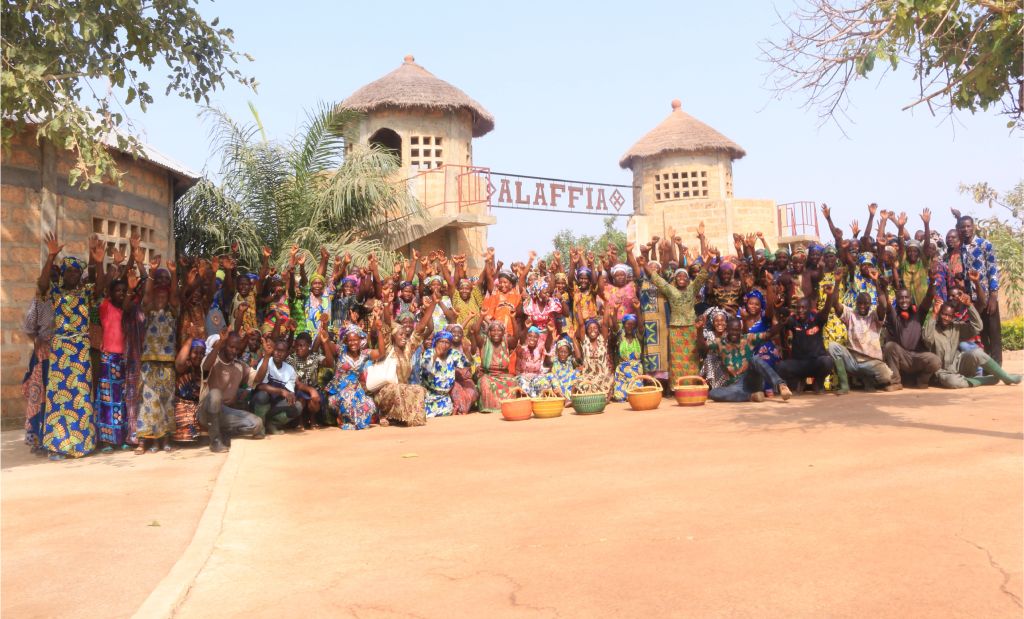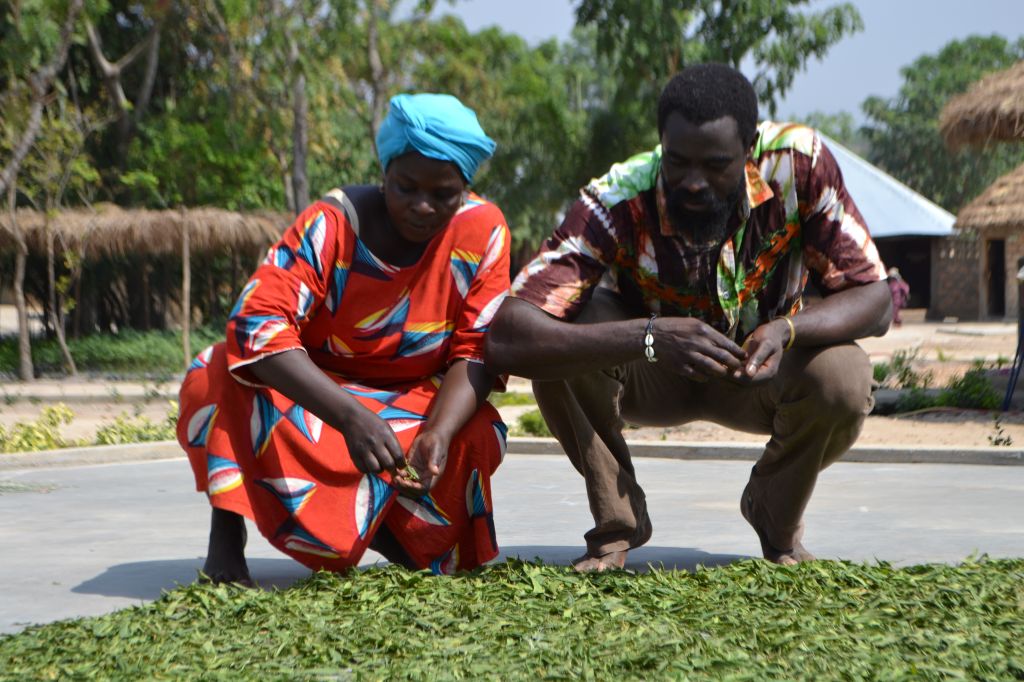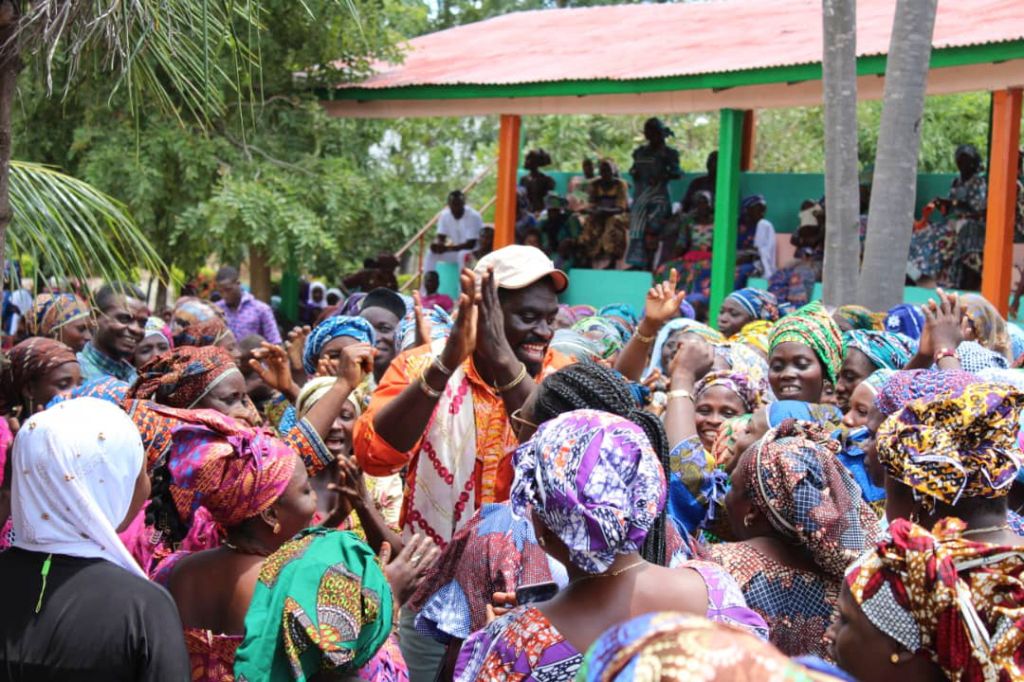As consumers’ needs and expectations change amidst COVID-19, the beauty industry is admittedly rattled. Disappointing first quarter sales and store closures are the daunting reality many companies face as they figure out how to best move forward. According to recent studies, beauty enthusiasts are getting their fix through self-pampering and DIY projects.
Alaffia is a socially conscious organization that handcrafts all-natural bath, body and hair care derived from fair trade shea butter, coconut oil and African black soap. The global organization has been a glowing example of sustainability, applying the “Do It Yourself” standpoint to a massive social enterprise of tens of thousands of co-op and collective members across two continents. The innovation, cultural pride and community regeneration exhibited by Alaffia since founding in 2003 serves as a clear model for other companies to emulate.
In dialect mainly used in Togo, Benin and Nigeria, “Alaffia” is a common greeting that means peace, health, and well-being. Alaffia, the enterprise, aims to preserve the region’s cultural heritage by manufacturing traditional recipes and methods as well as handcrafting indigenous ingredients.
In an exclusive interview with HELLOBEAUTIFUL, Alaffia founder and CEO, Olowo-n’djo Tchala, really delved into the motivation and the mental behind the brand. First, he recalls his childhood in Togo and how his family life impacts his business today.
“Our culture was always important to [my mother],” he started. “We wore the colors. We were raised to respect the traditions. We learned to work hard from sunup to sundown. Put all of this together in adult life, it becomes common sense to continue that path,” Tchala describes.
His life’s purpose became clear when his path crossed with Peace Corps Volunteer Prairie Rose Hyde, who was serving as an environmental volunteer in Tchala’s home village of Kaboli, Togo in 1996. With their shared love for positively impacting humankind. Olowo-n’djo and Rose developed their first shea butter cooperative in Togo in 2006.
Today, Alaffia employs over 11,000 workers in women’s cooperatives representing over 42 ethnic groups in West Africa. Co-op members are empowered to learn to handcraft and commodify the indigenous raw ingredients they have valued for generations.
“I think it’s important to share our culture around the world to get the respect we deserve,” Tchala stated. “The fact that with Alaffia a woman in West Africa can have traditional ways of life, and yet what [she] makes is available in Columbus Circle in New York,” he said.
Once the shea nuts are transformed into shea butter, the Alaffia team in Olympia, Washington in the United States creates the finished products. The fully sustainable business model has afforded Alaffia a sense of security at this time.
“What we learned [from the economic impact of COVID-19,]—the fact that we make our own shea nuts for shea butter, the fact that we’re making our own products today—it means that we’re not depending on somebody else to be able to continue to produce those products. That we’re considered to be essential, because we do make soap-derivatives and soap products, which in this kind of crisis are necessary,” Tchala explained.
Proceeds from the sale of these products ranging from shampoos, conditioners, soaps, lotions, and even handwoven market bags, are returned to communities to fund community empowerment and gender equality projects benefiting 250,000 individuals directly.
Alaffia was created specifically to eliminate poverty in Togo, one of the poorest countries in the world. More than 30% of the population is living below the poverty line. While many children in rural regions throughout the country are illiterate because they’ve had to prioritize work over school.
“We don’t see ourselves as ‘just a beauty brand.’ We see ourselves as one process continuing the struggle that many people have died for,” Tchala said referring to a lack of economic access, poor management of natural resources and global societal issues like women’s rights. “
Over the years, the Alaffia villages have built 15 schools and donated over 30,000 pairs of glasses to those in need. The company also donates bicycles every year for young women to be able to travel to school. Alaffia’s business model forms a complete circle where the community regenerates itself. Other empowerment projects include maternal care, school supplies, and reforestation. The environmentally conscious company has planted over 90,000 shea nut trees.
“We can employ ourselves. We know how to grow it. We know how to transform it,” Tchala said of the economic empowerment that comes when existing knowledge and less capital to transform nuts to butter. In exchange, the ethnicities can share their heritage and pride with the world.
Tchala’s cultural pride is further illustrated through the product packaging. The Eban symbol that is part of Alaffia’s service mark is a West African graphic which represents protection, security and love. When asked, why preserving his heritage is so imperative, Tchala said: “The way I was brought up. My father had 42 children, my mother had 8, and of those children it was mostly women.”
He went on, adding: “What I have really learned from my mother is the gender inequality we see throughout our community. She wanted me to see that. Therefore, I commit my life to closing those gaps, at least economically. She raised us to be good people with a conscience, and with a good conscience you’re able to serve. To serve the earth, serve the community and serve the woman in general, and to be proud of that.”
Tchala has made his own company-wide holiday by giving his employees the first Monday after Mother’s Day off in honor of his late mother, Ina. The goal is to provide more time for mothers to spend time with their families for fun and storytelling to carry down heritage from generation to generation.
As for the future of the beauty industry post-Coronavirus, Tchala believes he’s perfectly positioned.
“The fact that we can make our own products, we’re able to adjust and not depend on anybody else and that is the importance of understanding where your resources, your materials come from and how your ingredients are made and that you can follow it,” Tchala said. “The Alaffia model is helping us navigate this crisis. We’re fortunate. Our people are in good health. We’re taking the steps to keep everybody healthy and continue to produce and distribute our product today.”
When asked to predict the landscape ahead, Tchala believes that health and natural products will remain a priority to consumers. “I think this crisis is forcing us to think about our health, and as it is important what we eat it is important what we put on our skin. I predict that people will use and care more about natural personal care products, and those organizations that are focused on mostly chemical-based will see a decline,” he said.
Alaffia, the basic ingredient beauty brand with a big mission, is available at popular, environmentally conscious retailers like Whole Foods, Target, Sprouts, Amazon, Thrive, Wegmans and more. For more information visit http://www.alaffia.com.
Tchala’s purpose is as powerful as his products are popular, so we asked him why he believed Alaffia could change the world and he replied so profoundly, “It’s not so much about the size of the organization, but that kind of revolutionary process is changing the world. The world ought to be changed.”
More on Alaffia, here.
The Alaffia Beauty Brand Is The Industry’s Shining Example Of Sustainability was originally published on hellobeautiful.com



















